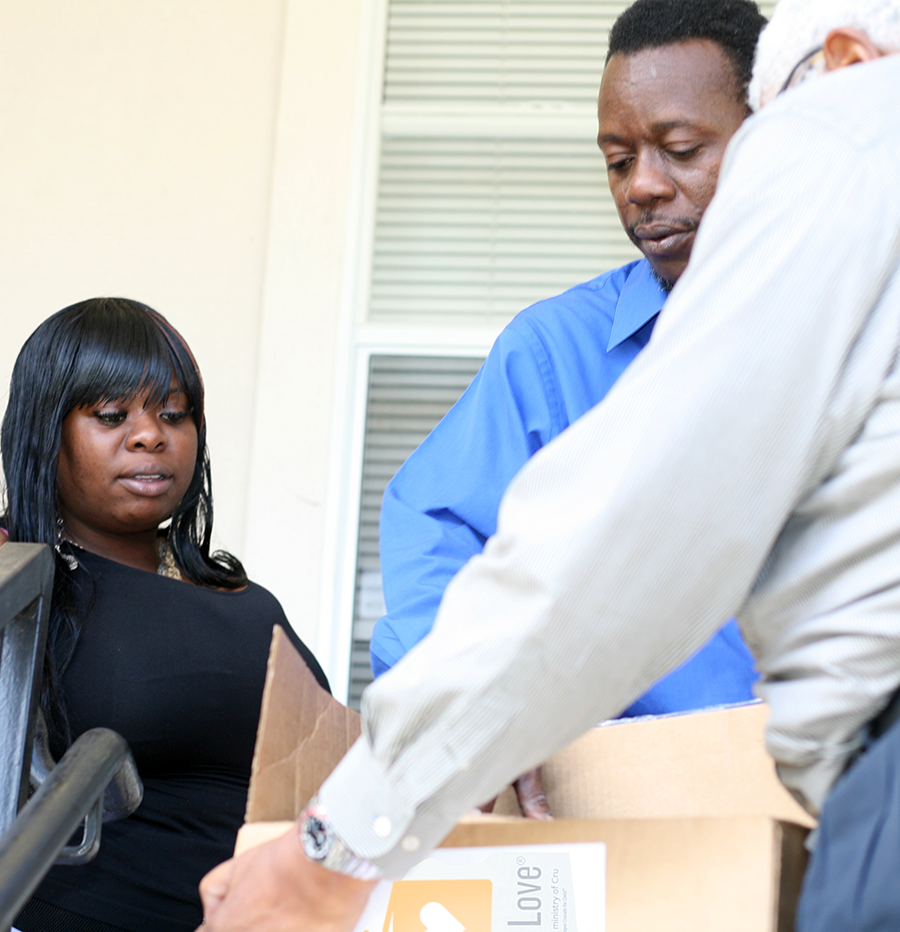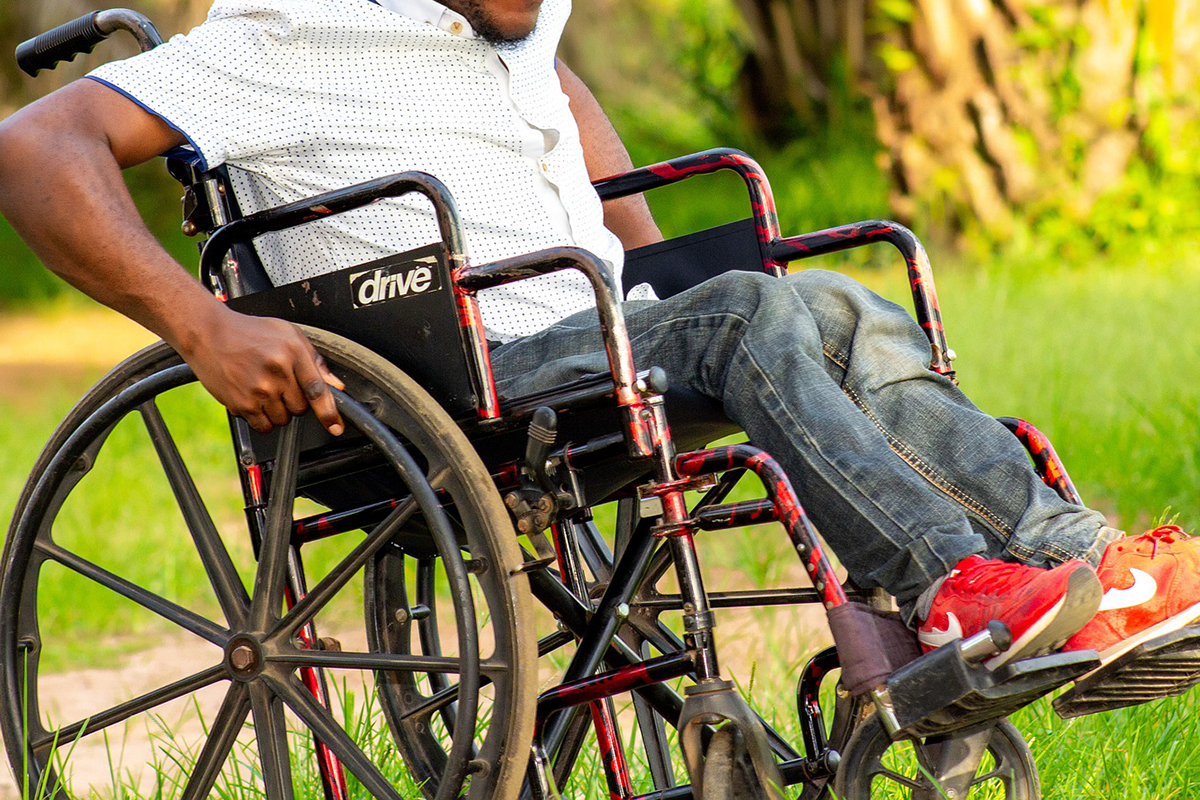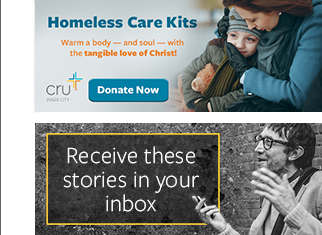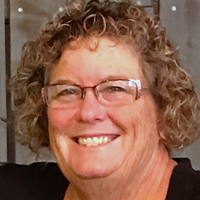
As a father of eight, John Bump is familiar with the happy chaos of a full house. The giddiness of a new discovery, scampering to grab the toy first, the occasional skirmish over that toy. Secrets and conspiracies. Giggles and groans. Joy and, sometimes, peace.
 So John was in familiar territory as he stood near the community center at Orange Avenue Apartments, south of downtown Tallahassee. The excitement was reminiscent of his own home, only on steroids, as dozens of families descended on the center to receive their Boxes of Love®. For many, it was a long-awaited breath of freedom as they ventured out for the first time during the pandemic.
So John was in familiar territory as he stood near the community center at Orange Avenue Apartments, south of downtown Tallahassee. The excitement was reminiscent of his own home, only on steroids, as dozens of families descended on the center to receive their Boxes of Love®. For many, it was a long-awaited breath of freedom as they ventured out for the first time during the pandemic.
The boxes, provided by Cru® Inner City, are part of an annual pre-holiday campaign benefiting urban churches, which in turn use them to further well-established relationships with their neighbors. Each of the boxes contains a full Thanksgiving meal for six people, plus gospel literature.
As team director for Inner City in Tallahassee, John has orchestrated dozens of similar distributions in some of the region's poorest neighborhoods, though he never tires of witnessing the impact. This time, he was assisting two local churches hosting the outreach at the apartments, a subsidized housing complex about a mile from City Hall.
As the cheerful commotion waned, John worked quietly by himself, tearing down tables and loading them into a truck. By then, the residents had returned home and the church volunteers were long gone, leaving him precious time to ponder the significance that the boxes, and gospel encounters, would have on these underserved families.
The apartment complex is located on Country Club Drive, an obvious misnomer. According to a 2015 study commissioned by the city and conducted by a Technical Assistance Panel through the Urban Land Institute, the South City neighborhood where the complex is located is among Tallahassee's most impoverished and crime-laden.
The median household income then was $14,181, with 68.5% of the population living below the poverty level. The unemployment rate, well before COVID-19, was 22%, four times greater than Tallahassee's overall rate of 5.6%. Nearly 58% received food stamps and only 8.3% were from intact families.
Overwhelmingly African-American and female, 40% of the residents are under age 18, compared to 17.2% citywide.
"Residents have little access to healthy food options and recreational activities. Health disparities abound."
The assessment was not news to John or the churches serving the poverty-stricken residents in that community. That was why volunteers from Greater Love Pentecostal Holiness and Friendship Primitive Baptist, both partner churches with Inner City, helped distribute the boxes to the Orange Avenue residents.
While packing up the equipment, John was deep in thought, feeling gratitude for church partners who were not only committed to easing the stress of their neighbors' food insecurity, but also to meeting their pressing spiritual needs.
 Suddenly a voice interrupted his musing.
Suddenly a voice interrupted his musing.
"Hey, am I too late? So where's all the food, where's all the boxes?"
John's eyes followed the voice to Jonathan Hunter, a 29-year-old man sporting dreadlocks. As the young man rolled up in a wheelchair, John noticed his legs were atrophied from lack of use and, likely, poor nutrition.
He was clearly in need of food, but everything was already gone. The scheduled distribution time came and went, but a hungry man was still staring John in the face. After apologizing for not having anything to offer, John told Jonathan he would call several nearby churches to see if anyone still had a Box of Love. He vowed to get back with him personally.
But Jonathan had no phone and no computer, a common issue in low-income communities. Without any long-term housing options, Jonathan was crashing at his brother's place for the time being. He pointed out its location to John and gave him the unit number. It was just a building over from where they stood.
After they prayed together, John left the complex, plotting how he would secure another box. He called numerous church partners, but every box had already been given out.
He widened the network, reaching out to various contacts in the city, including a local grocery store, to help secure enough food. As he waited for all the items to come in, John dropped by Jonathan's to let him know his Box of Love would arrive the following morning at 9:30.
"We want to bring a blessing to you and to also share a message of hope with you," John told his new friend. "He said, 'Wow, that would be great. I would love that.'"
As he headed for the door, John asked how he could pray for Jonathan. A surprise confession emerged from Jonathan's lips.
"I'm addicted to opioids and I've been trying to get into a recovery program. I can't seem to get in," Jonathan relayed.
John was not taken aback by the revelation but rather by how quickly Jonathan offered the admission.
"I don't know why he shared that," John recalled.
Before heading out, John once again prayed over Jonathan, asking God to intervene on his behalf.
"He seemed genuinely thankful that we were not dropping the box and departing; that we really wanted to know if there was something we could be praying for him," John said.
When the ministry leader returned the next morning Jonathan was eagerly waiting.
John placed the box on Jonathan's lap and began showing him its contents, including the Scriptures.
"I have a Bible for you," he said, handing it to him.
Jonathan took a long look at the sacred text.
"Wow, I've never had a Bible," Jonathan admitted.
"Really? Well this is yours, man," John responded.
"That's very cool," Jonathan said.
Seizing the opportunity, John deftly pivoted the discussion away from the contents of the box to the purpose behind the box.
| “Thinking about how the church can envelope Jonathan into the kingdom of God reminds me also that relationships based on need have to transition quickly into interpersonal relationships.” | "We wanted to share a message of hope with you," the Inner City leader said as he began to share the good news. After sharing the path to salvation, Jonathan indicated he wanted to know Christ personally, so the two bowed heads together. "He prayed a genuine, sincere prayer to thank God for saving him," John said. |
Before saying their goodbyes, the pair set a date to begin a Bible study over pizza.
Eventually, COVID-19 restrictions interfered and the pair lost contact, but not before Jonathan shared he was finally able to get into a recovery program.
"I was saddened by not being able to continue the relationship with him," John said. "This really underscores the need to have local church members involved in outreach as they can be in the community more often. Thinking about how the church can envelope Jonathan into the kingdom of God reminds me also that relationships based on need have to transition quickly into interpersonal relationships."
That is one reason why John is an advocate for asset-based community development, which focuses on community potential, not its deficits.
"We help communities see their strengths and build on that versus always seeing what's wrong," he said.
In the meantime, John is hopeful the two will cross paths again.
"I am looking for him and pray for him to resurface," he said.
Photo of man in wheelchair by Gregory Akinlotan/Pixabay

Previous Posts:
 Lori Arnold serves as senior writer for Cru's inner-city ministry.
Lori Arnold serves as senior writer for Cru's inner-city ministry.
John's story is an uplifting example of how investing a little bit of time can produce eternal dividends. Share John and Jonathan's story on Facebook or other social media platforms by using this link:
©1994-2024 Cru. All Rights Reserved.